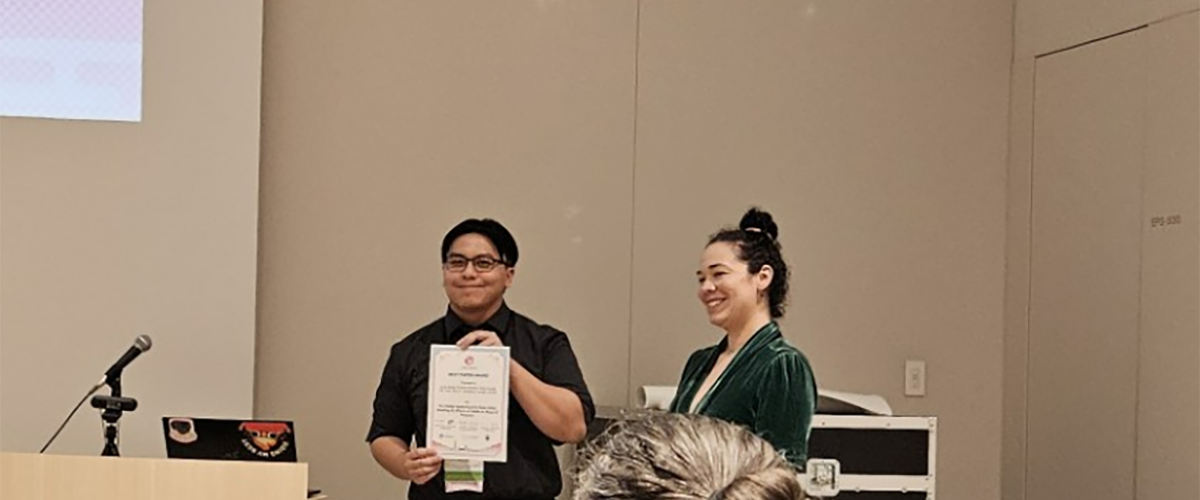A doctoral student dedicated to creating authentic experiences in virtual reality (VR) has earned a Best Paper Award from the Association for Computing Machinery (ACM) Conference on Human Factors in Computing Systems (ACM CHI), held in Yokohama, Japan. The distinction was awarded to the top 1% of paper submissions.
Jake Belga ’20 ‘23MS, a fifth-year doctoral candidate in Professor Joseph LaViola’s lab, Interactive Computing Experiences, earned the award for his research, “The Fidelity-based Presence Scale (FPS): Modeling the Effects of Fidelity on Sense of Presence.”
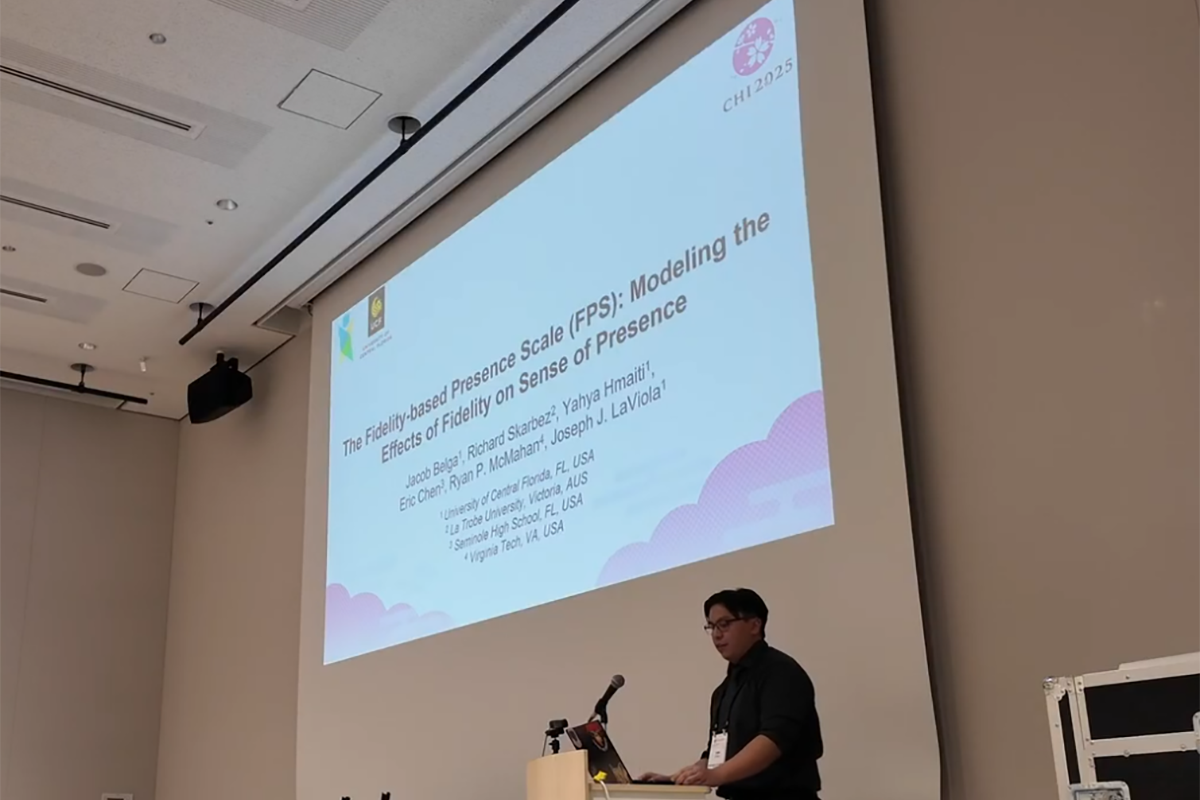
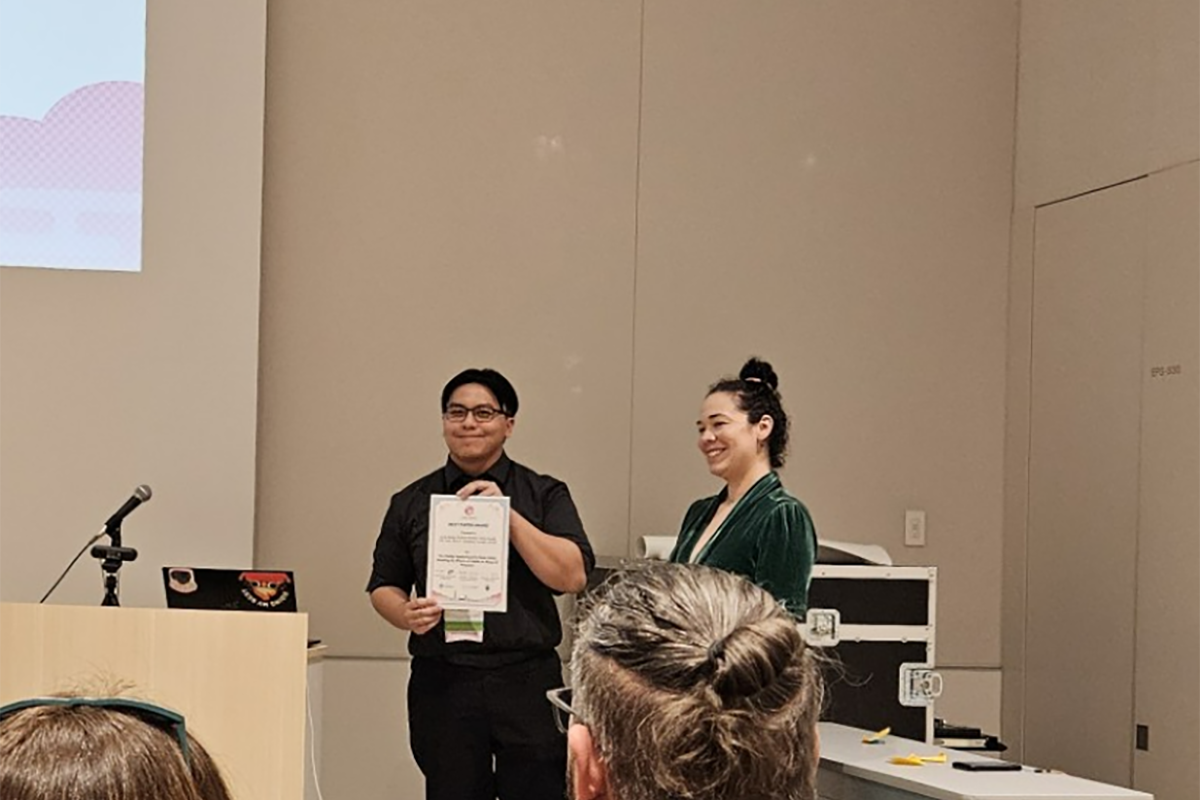
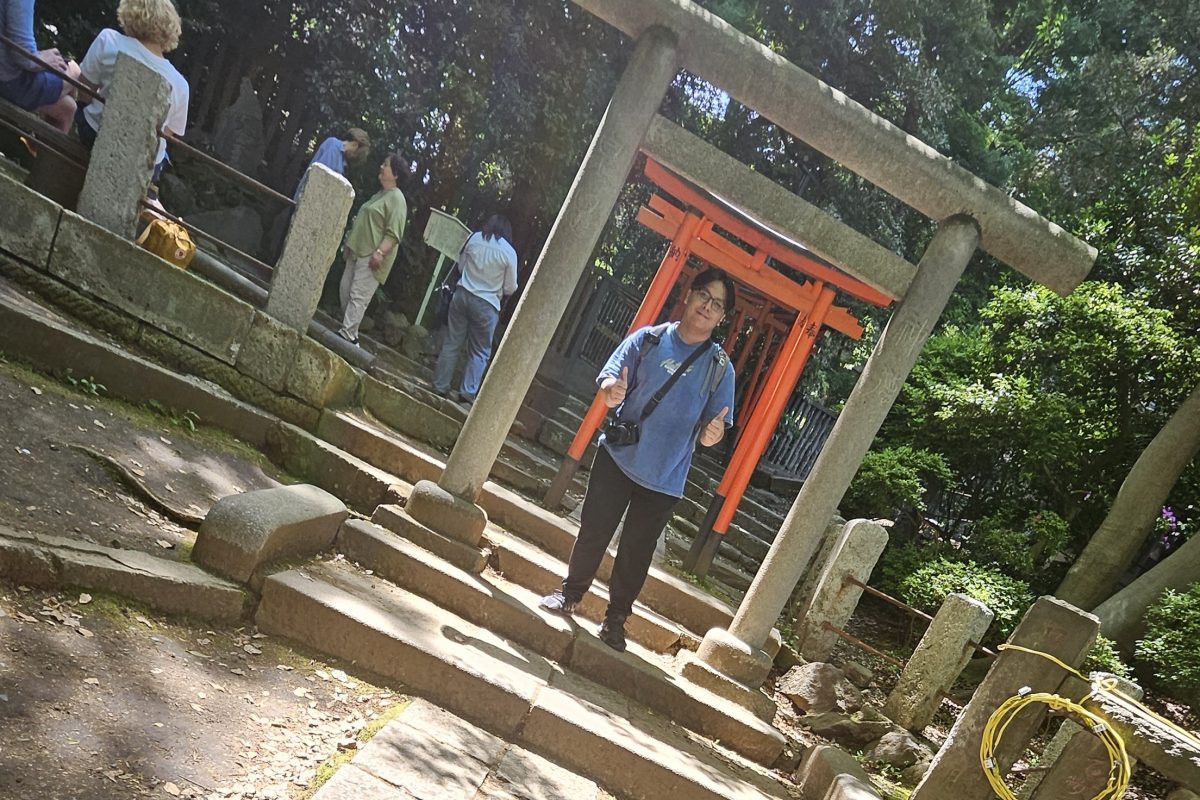
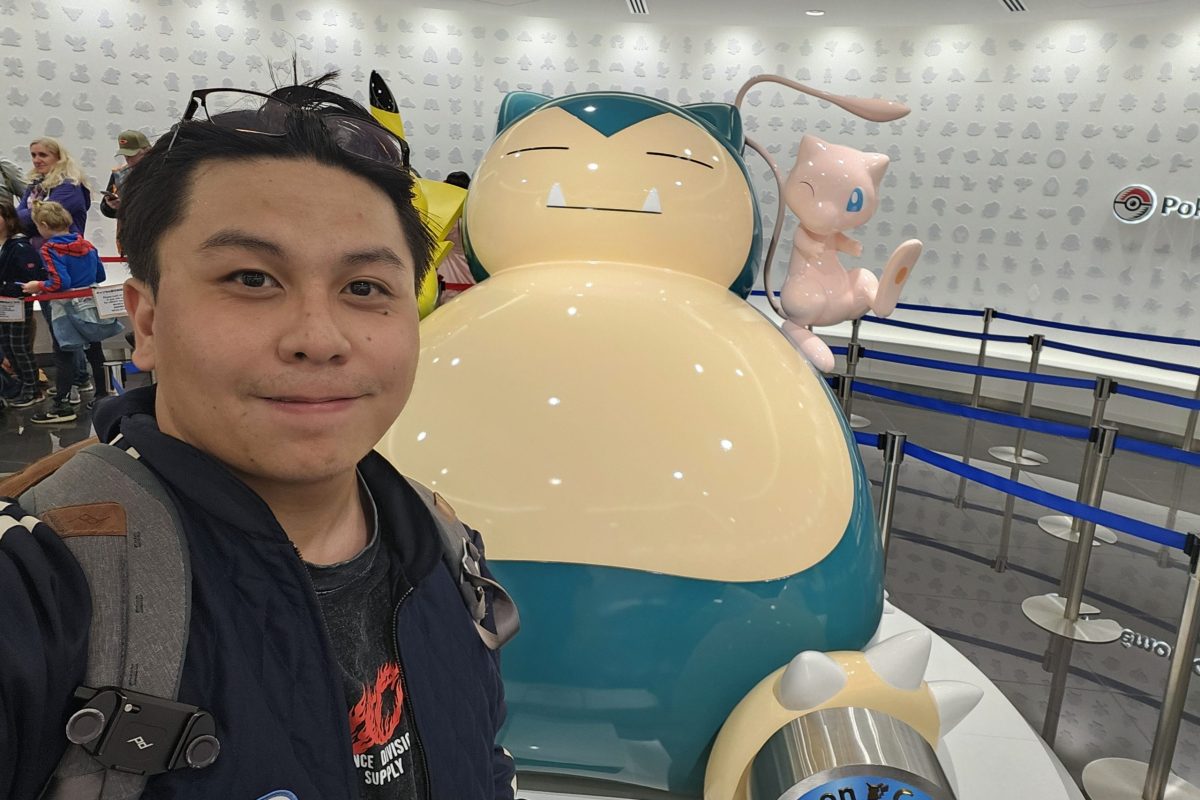
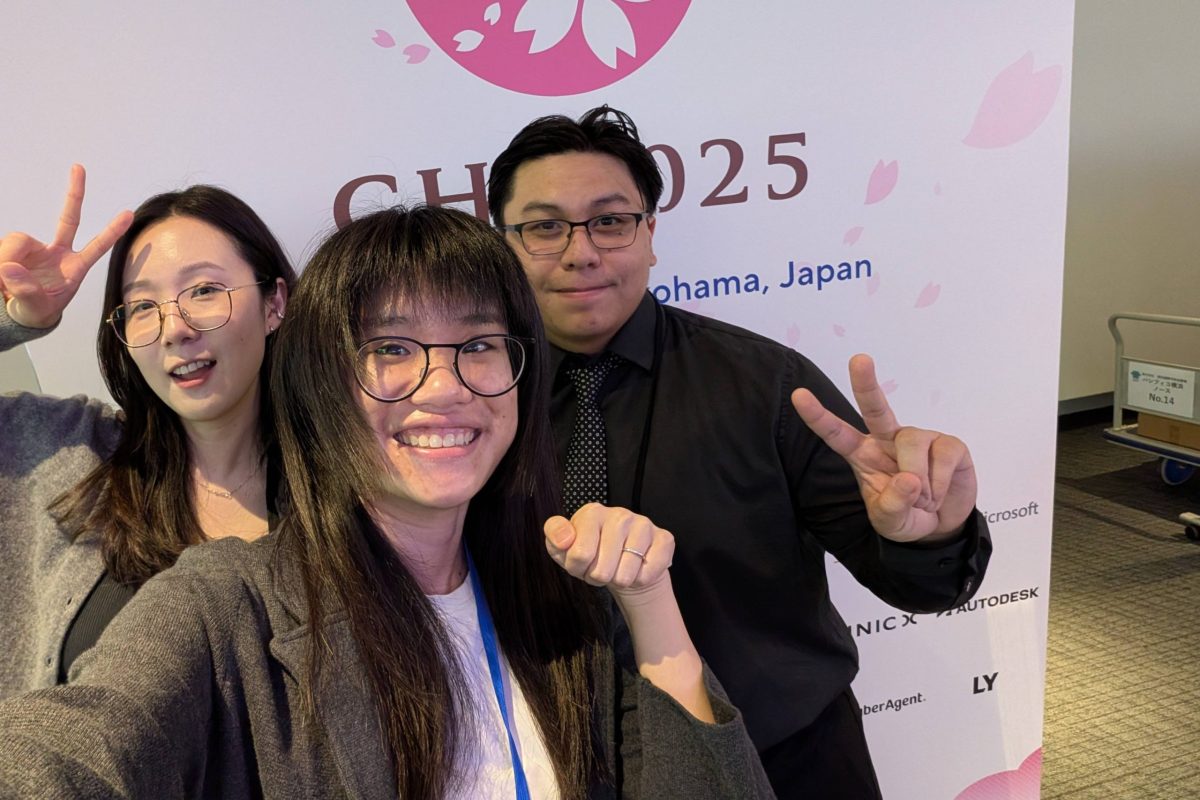
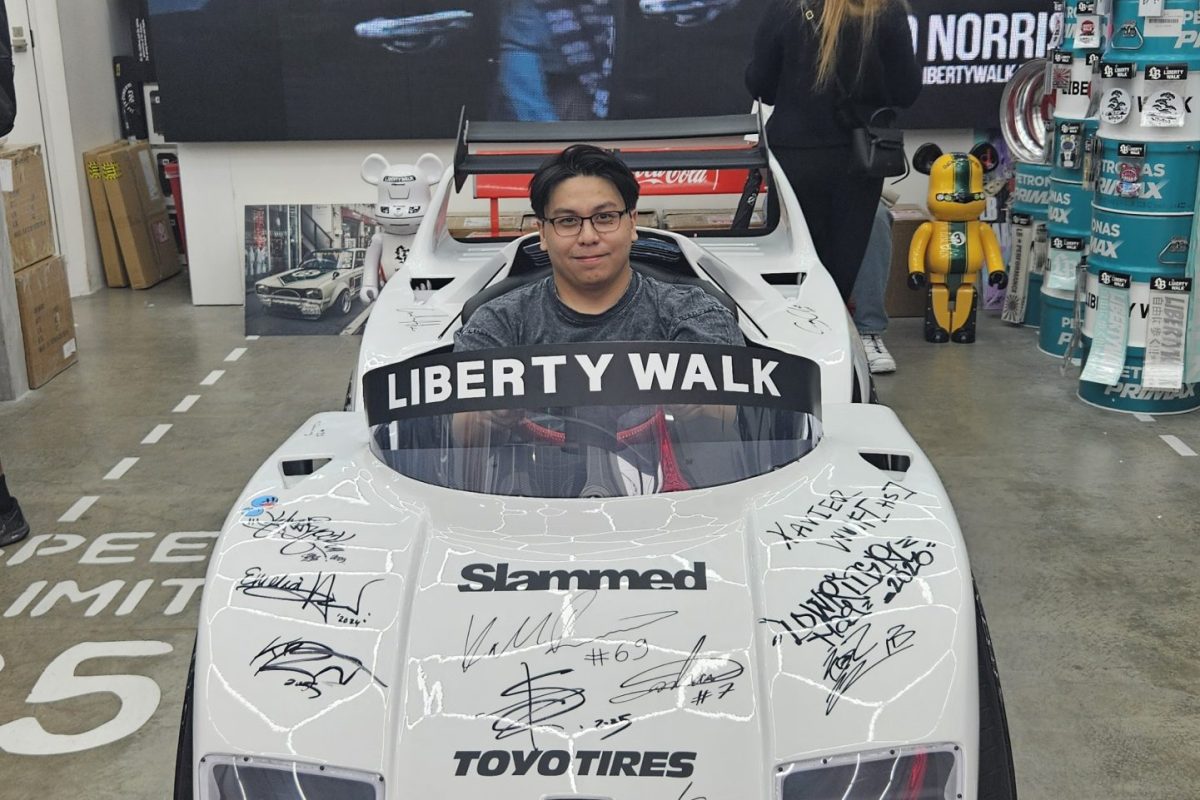
Belga’s work is devoted to presence, or how realistic if feels to “be there” in a VR environment. He says he had the opportunity to study a wide range of human-computer interaction (HCI) research areas in LaViola’s lab, but was intrigued by presence in VR.
“Through much literature review, I became fascinated with presence in virtual environments,” he says. “This review led me to question and want to investigate what aspects of virtual environment design makes a user feel more or less present in a VR experience.”
One of the keys to success in creating lifelike experiences is knowing the right questions to ask to determine what can be improved. To that end, Belga has developed a novel questionnaire to determine what aspects of VR affect presence. He studied numerous questionnaires authored by the virtual reality community to determine best practices, focusing his questionnaire on a subject not adequately covered in the field: the particular components of VR applications that would affect a user’s perception of presence.
“Though presence is a psychological response to a VR experience, I am investigating the ways we can examine what design decisions or implementation techniques affect the sense of presence in virtual environments,” he says.
He adds that his work is valuable for future developments in VR, as it will enable researchers to better communicate and measure presence results with regard to how the users interact with the virtual environment, how virtual agents and objects behave, and how the virtual experience conveys information to the five senses.
With augmented reality and VR experiences becoming more and more ubiquitous in fields ranging from healthcare to defense, Belga’s work helps set the standard for more realistic virtual experiences for users.
“My new presence questionnaire can be utilized as a metric for quality of virtual experience,” he says. “In game development or immersive experiences, using a tool such as my presence questionnaire can aid in learning what features of an environment caused an individual or group of individuals to feel more a part of the virtual world as compared to the real world.”
The two-time Knight was drawn to UCF for its outstanding academics in computer science.
“I chose UCF because I was very passionate about pursuing a degree in computer science and UCF has a very strong program,” he says. “Subsequently, as I joined Dr. LaViola’s lab during my undergraduate, it was a natural transition into my Ph.D. after graduating with my B.S. in computer science.”
Following his time at UCF, Belga plans to stay in the field, contributing to the advancement of VR technologies.
“Once I earn my doctorate, my plan is to pursue opportunities in either academia or industry that allow me to continue conducting research and further advance knowledge and applications in HCI.”
- Written by Bel Huston
